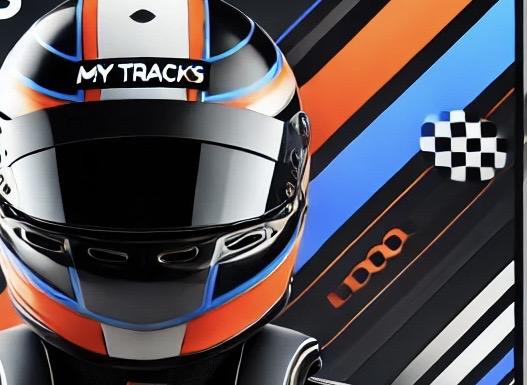
Track days have long been a beloved tradition for automotive enthusiasts, offering a unique opportunity to push their vehicles to the limit in a controlled environment. However, as technology continues to advance, the landscape of these thrilling experiences is set to evolve dramatically. Discover how technology is shaping the future of track days and enhancing the experience for enthusiasts. From real-time data analytics to immersive virtual reality, innovations are not just improving performance; they are transforming how drivers engage with the track.
As enthusiasts seek to maximize their skills and enjoy every moment on the circuit, the integration of cutting-edge tools is redefining the track day experience. Whether it's through advanced telemetry systems that provide actionable feedback on driving techniques or VR simulations that prepare racers for the real deal, technology is playing a pivotal role in making track days more accessible and enjoyable. In this blog post, we will explore how these advancements are revolutionizing the way we approach the track, ensuring that every lap becomes an unforgettable experience.
Revolutionizing track days with cutting-edge technology
Track days have evolved dramatically in recent years, thanks to the introduction of cutting-edge technology that enhances both safety and enjoyment for car enthusiasts. Digital lap timers and smart wearables have become essential tools, allowing drivers to monitor their performance in real time. Devices like OBD-II adapters provide instant feedback on vehicle health, letting drivers make informed adjustments before hitting the track. Furthermore, live telemetry systems offer insights into driving behavior, equipping enthusiasts with the information they need to optimize their skills and vehicle setup. These advancements not only foster a smoother and more exciting driving experience but also promote a culture of continuous improvement among participants.
As track day events adopt innovations such as cloud technology, organizers can streamline operations and enhance the overall experience for participants. Pre-registered drivers benefit from personalized communication, automated scheduling, and efficient access to event logistics and performance data. Additionally, advanced safety features such as drone monitoring and real-time weather updates ensure that everyone on the track feels secure and informed. These technological advancements collectively transform the track day experience, making it more engaging and accessible for both seasoned racers and newcomers alike. Discover how technology is shaping the future of track days and enhancing the experience for enthusiasts.
How data analytics is enhancing performance on the track
Data analytics plays a crucial role in maximizing every driver's performance during track days. By collecting data from various sensors and onboard telemetry, drivers gain valuable insights into their vehicle's behavior, track conditions, and personal driving habits. This technology allows enthusiasts to analyze aspects such as speed, braking points, throttle application, and cornering speeds in real time. Armed with this information, drivers can make informed decisions and adjustments, leading to improved lap times and a more gratifying experience on the track.
Moreover, advanced analytics platforms now offer personalized coaching by comparing a driver's data with that of professional racers. These platforms identify specific areas for improvement and suggest targeted techniques to enhance both skills and vehicle performance. By leveraging this technology, participants can adopt a more strategic approach to their track day, focusing efforts on optimizing their driving style and car setup. Ultimately, data analytics not only boosts individual performance but also fosters a sense of community as drivers share insights and learn from each other, transforming track days into a collaborative environment for all enthusiasts.
The role of virtual reality in transforming the track day experience
Virtual reality (VR) is making significant waves in the world of motorsports, particularly during track days. By allowing enthusiasts to immerse themselves in a simulated environment, VR technology provides a unique opportunity for drivers to familiarize themselves with a track before they even set foot on it. With realistic depictions of every corner, elevation change, and track surface, users can mentally prepare and refine their racing strategies without the pressure of actual on-track performance. This level of preparation not only boosts confidence but also enhances safety, as drivers become more adept at navigating the complexities of various track layouts.
Moreover, VR opens up new possibilities for instruction and coaching. Track day organizers can incorporate VR training modules that let both novice and experienced drivers analyze their techniques in a risk-free environment. These modules can offer instant feedback, enabling users to recognize areas needing improvement right away. In this way, technology not only enriches the way enthusiasts experience track days, but it also fosters a culture of learning and growth, ensuring that every participant maximizes their potential. As VR continues to advance, its integration into track days will undoubtedly transform how drivers engage with the sport, paving the way for a more immersive and informative experience.